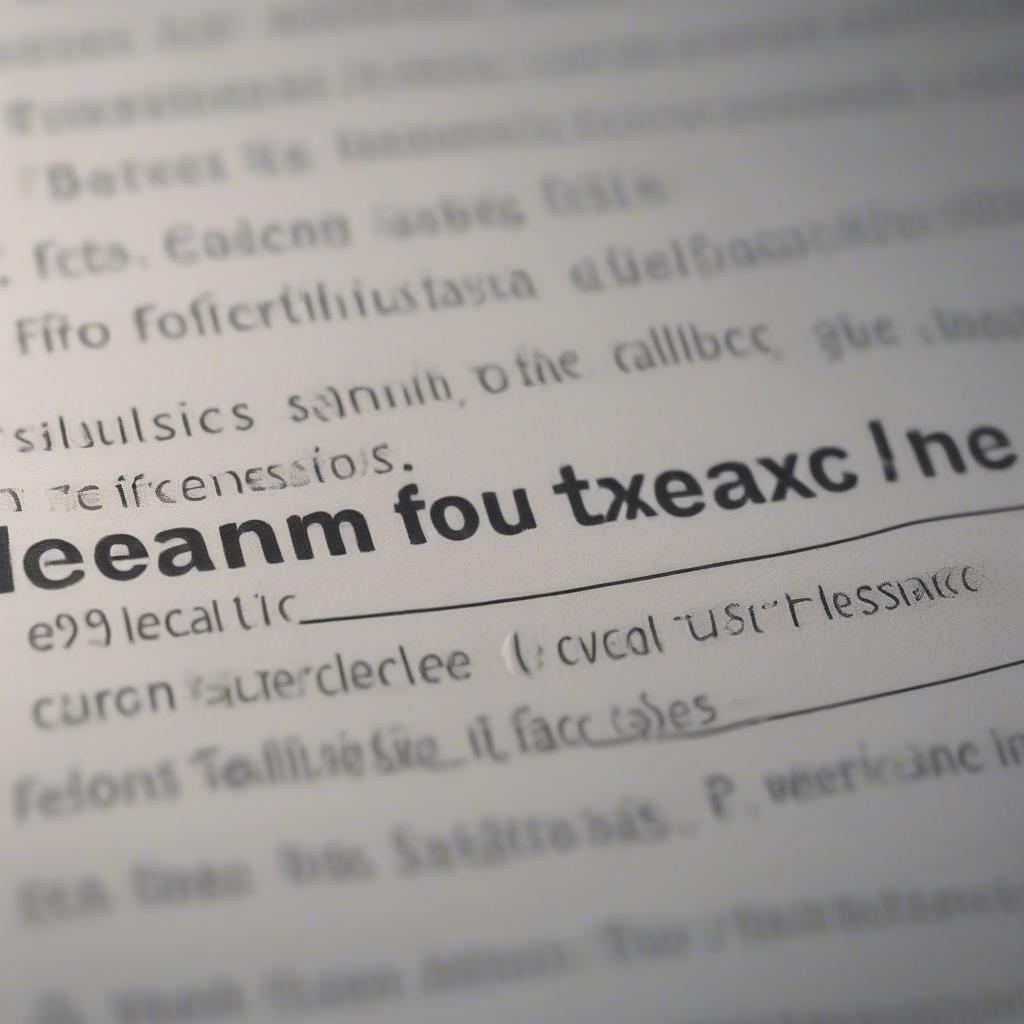
Okay, you’ve taken the leap into the world of freelancing. Congratulations! You’re your own boss, setting your own hours, and choosing projects that light you up. But with great freedom comes… well, taxes. The world of freelance taxes can seem like a confusing maze, but fear not! This guide will break it down, making it understandable and actionable. We’ll navigate the ins and outs of self-employment taxes, explore essential tax tips, and ensure you keep more of your hard-earned cash in your pocket.
What are Freelance Taxes?
Let’s start with the basics. When you work a traditional job, your employer takes care of things like withholding income tax, Social Security, and Medicare from your paycheck. As a freelancer, you’re considered self-employed, which means you’re responsible for handling all of these obligations yourself. This is where self-employment tax comes into play.
Understanding Self-Employment Tax
Self-employment tax is essentially the equivalent of the Social Security and Medicare taxes that employers typically cover for their employees. This tax consists of two parts:
- Social Security Tax: Covers benefits for retirement, disability, and survivors.
- Medicare Tax: Funds healthcare benefits for the elderly and disabled.
The current self-employment tax rate is 15.3%, which includes 12.4% for Social Security and 2.9% for Medicare. Because you’re both the employee and the employer, you pay the full 15.3%. This is in contrast to traditional employment where the employer covers half. While it might seem daunting, it’s a necessary part of being self-employed.
Why are Freelance Taxes Different?
Traditional employees have taxes automatically deducted from their paychecks. Freelancers don’t. You receive gross payments and are responsible for paying all applicable taxes. This difference makes understanding freelance taxes crucial to avoid unpleasant surprises when tax season rolls around.
Why is Paying Freelance Taxes Important?
Failing to pay your freelance taxes can result in penalties and interest from the IRS (Internal Revenue Service). Not only is it the law, but proper tax planning and payment also help avoid financial stress and potential legal troubles. Additionally, paying into Social Security and Medicare benefits you in the long run, ensuring you have access to these programs when you need them.
When Do You Pay Freelance Taxes?
Unlike W-2 employees who have taxes automatically deducted from each paycheck, freelancers pay their taxes differently:
Quarterly Estimated Taxes
The IRS requires self-employed individuals to pay taxes quarterly. These are called “estimated taxes” because they’re based on what you expect to earn for the year. This helps the government receive tax payments throughout the year, rather than in one lump sum at the end.
When are Estimated Tax Deadlines?
- April 15th: For income earned from January 1st to March 31st
- June 15th: For income earned from April 1st to May 31st
- September 15th: For income earned from June 1st to August 31st
- January 15th of the following year: For income earned from September 1st to December 31st
If any of these dates fall on a weekend or holiday, the deadline is shifted to the next business day. Missing these deadlines can incur penalties, so mark them clearly on your calendar and set reminders.
How to Estimate Your Taxes
Calculating your estimated taxes can be a bit tricky, especially in the early days of freelancing. Here’s how to go about it:
- Project Your Income: Estimate how much you expect to earn for the year. Look at past invoices, project growth, and factor in any seasonal fluctuations.
- Calculate Deductions: Identify all business expenses that are deductible, such as software, travel, and home office costs. These reduce your taxable income.
- Estimate Taxable Income: Subtract your estimated deductions from your projected income. This is your estimated taxable income.
- Calculate Tax Liability: Use the current tax rates to calculate your estimated tax liability (both income tax and self-employment tax). There are many free online tax calculators to help with this.
- Divide by Four: Divide your total estimated tax liability by four to find out how much you need to pay each quarter.
Example:
Let’s say you estimate your annual income to be $60,000 and your deductible business expenses to be $10,000. Your estimated taxable income is $50,000. Based on the tax bracket, you might owe approximately $8,000 in income tax and another $7,650 in self-employment tax. Total taxes would be $15,650. This means you would pay approximately $3,912.50 each quarter.
Tip: It’s always better to overestimate than underestimate your taxes. If you overpay, you’ll receive a refund at the end of the year, which is far preferable to facing penalties and interest.
How to Pay Freelance Taxes
Once you know how much you owe, you need to pay it. Here’s how you can do it:
Electronic Funds Withdrawal
The most common way to pay is through the IRS’s Electronic Federal Tax Payment System (EFTPS). You can set up a payment account and schedule payments in advance.
Direct Pay
You can also make payments directly from your bank account through the IRS website using Direct Pay.
Mail a Check or Money Order
You can pay by mail, but it’s generally the least convenient method. Always make sure to send payment to the correct address along with your name, address, SSN, and the appropriate form.
Pro-Tip: Whichever method you choose, always keep records of your payments for your records.
Tax Tips for Freelancers: Reducing Your Tax Burden
Now that we’ve covered the basics, let’s explore some vital tax tips that will help reduce your tax liability and save you money.
Track Business Expenses
The golden rule for freelancers: track EVERY business expense. You’d be surprised how much these expenses can add up over the course of a year, and they can significantly reduce your taxable income.
Common deductible business expenses include:
- Home Office Expenses: Rent or mortgage interest, utilities, and repairs (if you have a dedicated workspace).
- Software and Subscriptions: Design programs, project management tools, accounting software, and other business applications.
- Office Supplies: Printer paper, ink, pens, and other office essentials.
- Professional Development: Courses, books, seminars, and industry conferences.
- Business Travel: Transportation, accommodation, and meals when traveling for work.
- Marketing and Advertising: Costs of running ads, creating promotional materials, and networking.
- Internet and Phone Service: Portion of your bill used for business purposes.
- Professional Fees: Accountant fees, legal fees, and other professional costs.
How to track your expenses:
- Use Accounting Software: Tools like QuickBooks Self-Employed, FreshBooks, or Xero make tracking expenses easy.
- Dedicated Bank Account: Keep your business and personal finances separate by opening a dedicated business bank account.
- Spreadsheets: Use Excel or Google Sheets to log your income and expenses manually.
Utilize the Home Office Deduction
If you use a part of your home exclusively and regularly for business, you may be eligible for the home office deduction. This can be a substantial tax saving.
Requirements for Home Office Deduction:
- Exclusive Use: The space must be used solely for business purposes. A desk in a corner of your bedroom won’t cut it if it’s also used for personal activities.
- Regular Use: The space must be used regularly for your business. Occasional use isn’t sufficient.
- Principal Place of Business: For most freelancers, their home office is their principal place of business.
- Separate Structure: If the office is in a separate structure like a shed or studio, those must meet the above requirements.
How to calculate the home office deduction:
- Simplified Method: Multiply the allowable square footage of your office (up to 300 sq. ft.) by $5 per square foot.
- Regular Method: Determine the percentage of your home used for business and deduct that percentage of applicable household expenses.
Understand Pass-Through Deductions
If your freelance business is set up as a sole proprietorship, partnership, or S corporation, you may be eligible for the qualified business income (QBI) deduction. This allows eligible business owners to deduct up to 20% of their qualified business income, which can further lower your tax liability. It’s best to consult a tax professional to determine if you are eligible for this deduction and how to accurately claim it.
Pay Yourself a Retirement
As a freelancer, you’re responsible for your retirement savings. Contributing to a retirement account isn’t just good for your future, it can also reduce your taxes.
Types of retirement accounts for freelancers:
- SEP IRA: A Simplified Employee Pension IRA is easy to set up and lets you contribute a significant amount, up to 25% of your net self-employment income (up to a maximum).
- Solo 401(k): This allows both employee and employer contributions and often allows more to be contributed than the SEP IRA.
- SIMPLE IRA: A Savings Incentive Match Plan for Employees, similar to a 401(k) but with different rules regarding matching contributions.
Consider Hiring a Tax Professional
While this guide provides a lot of helpful information, tax laws are complex and can change. Working with a tax professional or accountant specializing in self-employment can give you a peace of mind. A professional can help you navigate the complexities, identify deductions you might miss, and ensure you’re compliant with all tax regulations.
Avoiding Common Freelance Tax Mistakes
Many freelancers unintentionally make mistakes with their taxes. Here are some common pitfalls to avoid:
- Not Paying Quarterly Taxes: One of the biggest mistakes freelancers make is failing to pay estimated taxes quarterly.
- Not Tracking Income and Expenses: Without proper tracking, it’s impossible to accurately calculate your taxes or take proper deductions.
- Mixing Personal and Business Finances: Always keep your business and personal finances separate.
- Claiming Ineligible Expenses: It’s tempting to deduct every expense, but if they’re not directly related to your business, they’re not deductible.
- Ignoring Tax Deadlines: Missing deadlines can result in penalties and interest.
- Not Keeping Proper Records: Ensure all receipts, invoices, and bank statements are saved to prove deductions and income.
- Using Incorrect Tax Forms: Make sure you’re using the appropriate forms, such as the 1040-ES for estimated taxes, or a schedule C to report your income or expenses. Using the wrong forms can lead to delays in processing your refund or trigger an audit.
- Waiting Until the Last Minute: Planning and preparing your tax information throughout the year will save you time and stress, also avoid rush mistakes.
Learn Business: Your Partner in Freelance Success
Managing your freelance taxes can feel overwhelming, but you don’t have to do it alone. At Learn Business, we’re dedicated to supporting freelancers and small business owners like you. We understand the unique challenges you face, and we offer practical solutions that will help you streamline your operations and thrive.
How Learn Business Supports Freelancers
- Expert Guidance: We provide step-by-step guides, tutorials, and articles on all aspects of freelancing, including tax management, budgeting, client communication, and marketing.
- Customizable Templates: Save time and effort using our downloadable, professional templates designed for invoices, expense tracking, project management, and more. These templates are designed to help you track everything you need.
- Community Support: Connect with like-minded professionals in our community forums where you can share experiences, ask questions, and learn from others.
- Business Planning Tools: We have templates and advice that can help you create a business plan. It provides a clear path to achieving financial goals, also, it can provide direction in tax planning.
- Personalized Business Support: We offer personalized consultations with experienced business advisors who will provide guidance tailored to your business needs.
- Up-to-Date Tax Guides: Learn Business keeps all resources updated, so that our freelancers are aware of tax law changes and best practices.
Benefits of Using Learn Business:
- Save Time: Our templates and resources simplify complicated tasks.
- Increase Efficiency: Streamline your operations and focus on growing your business.
- Reduce Stress: Access the support and tools you need to confidently handle your business responsibilities.
- Maximize Profitability: Learn to track expenses effectively and pay the minimum taxes necessary.
- Gain Confidence: Empower yourself with the knowledge and tools you need to achieve your business goals.
Navigating freelance taxes doesn’t have to be a source of stress. With proper planning, accurate tracking, and the right support, you can manage your taxes with confidence. Remember, understanding your responsibilities and taking advantage of available deductions are essential to your financial success. Learn Business is here to guide you every step of the way. Take control of your finances and unlock your full potential.



Leave a Reply